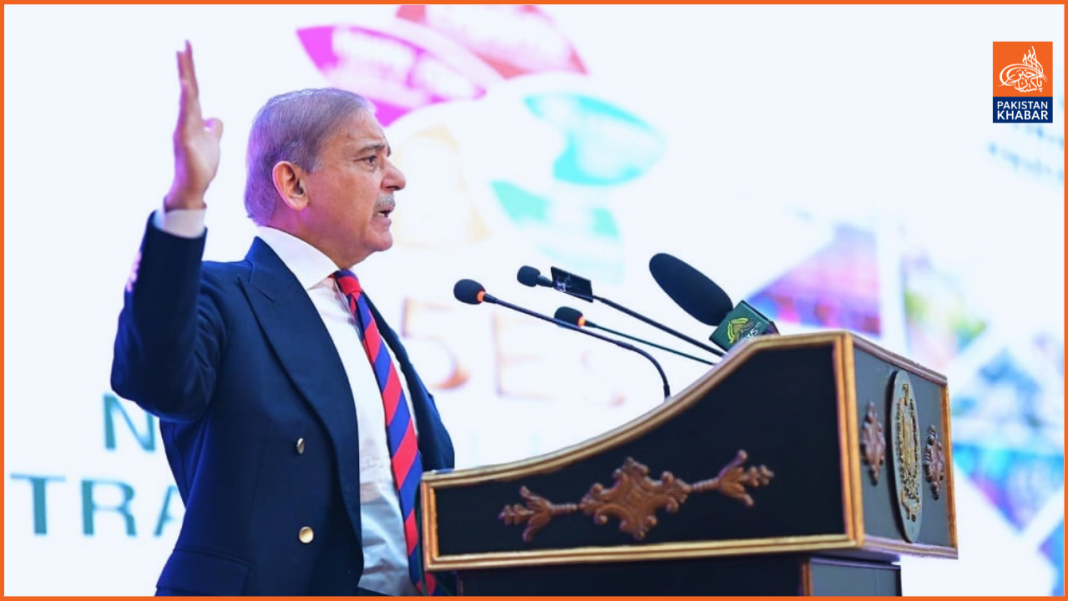ISLAMABAD: On Tuesday, Prime Minister Shehbaz Sharif unveiled the National Economic Transformation Plan titled “Uraan Pakistan,” a five-year initiative aimed at fostering sustainable economic growth. This plan, covering the period from 2024 to 2029, focuses on achieving export-led growth through five strategic pillars: exports, e-Pakistan, environment, energy, equity, and empowerment.
Addressing the launch ceremony, the Prime Minister stressed that the country had already achieved macroeconomic stability, and now the focus would shift to accelerating growth. This growth would be driven by targeted investments, reforms, and policies designed to boost the country’s economic performance. Sharif emphasized that the plan’s success would depend on political unity and cooperation between all sectors of society, including political parties, institutions, and the people of Pakistan.
The event, which was attended by top political leaders, including Deputy Prime Minister Ishaq Dar, Punjab Chief Minister Maryam Nawaz Sharif, and various ministers and diplomats, was a demonstration of collective political support for the economic plan. The Prime Minister underscored the importance of increasing annual investments to $10 billion in key sectors, particularly in IT, agriculture, exports, and mining. He highlighted export-led growth as the cornerstone of “Uraan Pakistan,” acknowledging it as essential for the economic revival of Pakistan.
Sharif acknowledged the country’s persistent issues with inefficiency, particularly in the electricity and gas sectors, where corruption and lack of reforms have drained national resources. He noted that the Federal Board of Revenue (FBR) could significantly enhance revenue collection if reforms were implemented. He also pointed out the massive losses incurred by state-owned entities over the past decade, amounting to trillions of rupees.
Despite these challenges, the Prime Minister highlighted the positive progress Pakistan had made in the last year. Inflation was reduced to 5%, exports rose by 10%, and IT exports saw a remarkable increase of 34%. Furthermore, the government had made strides in reducing the policy rate to 13%. The Prime Minister credited these successes to the collective efforts of the federal and provincial governments, as well as the support of international partners.
Prime Minister Sharif also emphasized the importance of clean and affordable energy, particularly solar power, as part of the country’s energy transition. He referred to solar energy as the “name of the game” for Pakistan’s future, particularly in addressing the country’s energy needs. With global attention on energy sustainability, the Prime Minister expressed hope that renewable sources like solar energy would become central to the nation’s development.
Looking ahead, Sharif vowed that the government would continue its efforts to boost economic growth, with particular focus on exports as the driving force behind the country’s recovery. He called for national unity, political harmony, and a collective commitment to the nation’s future. The Prime Minister concluded by urging the people of Pakistan to unite in facing challenges and work together to make 2025 a year of progress and prosperity.
Sharif’s vision for “Uraan Pakistan” is to turn the nation into a self-reliant, strong economy, with the ultimate goal of achieving long-term prosperity through collective national effort and sustainable development.




